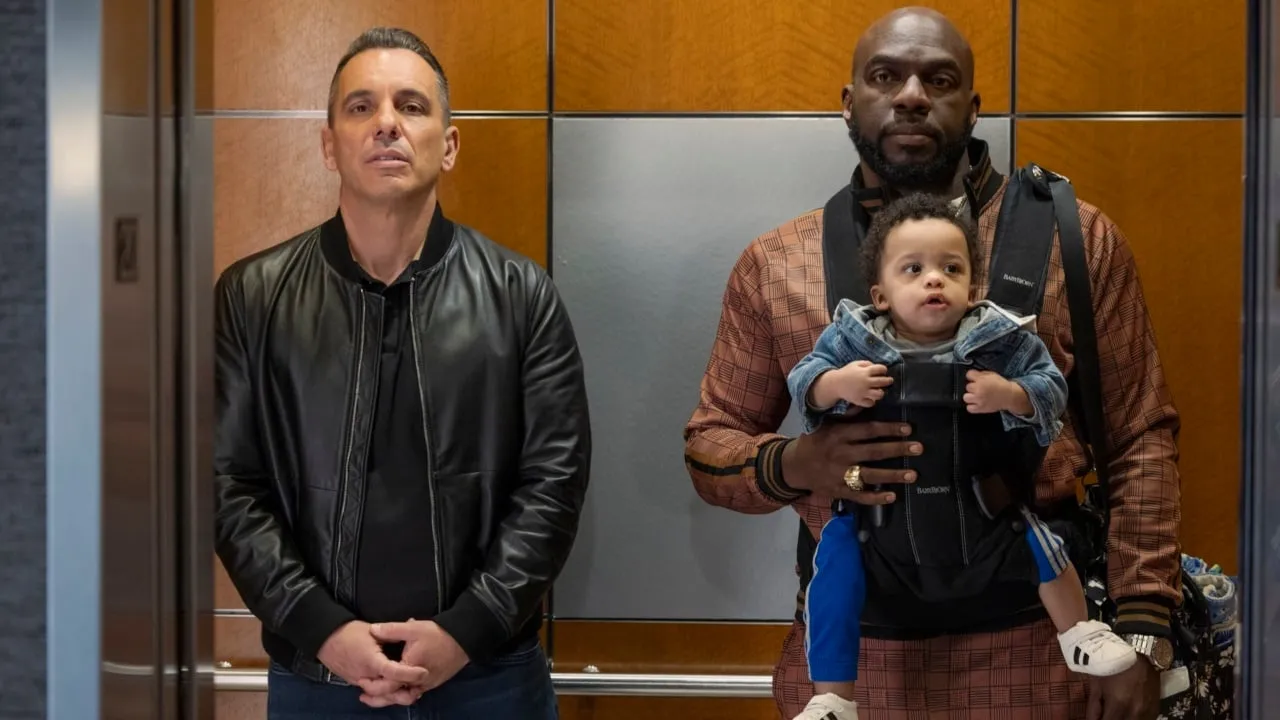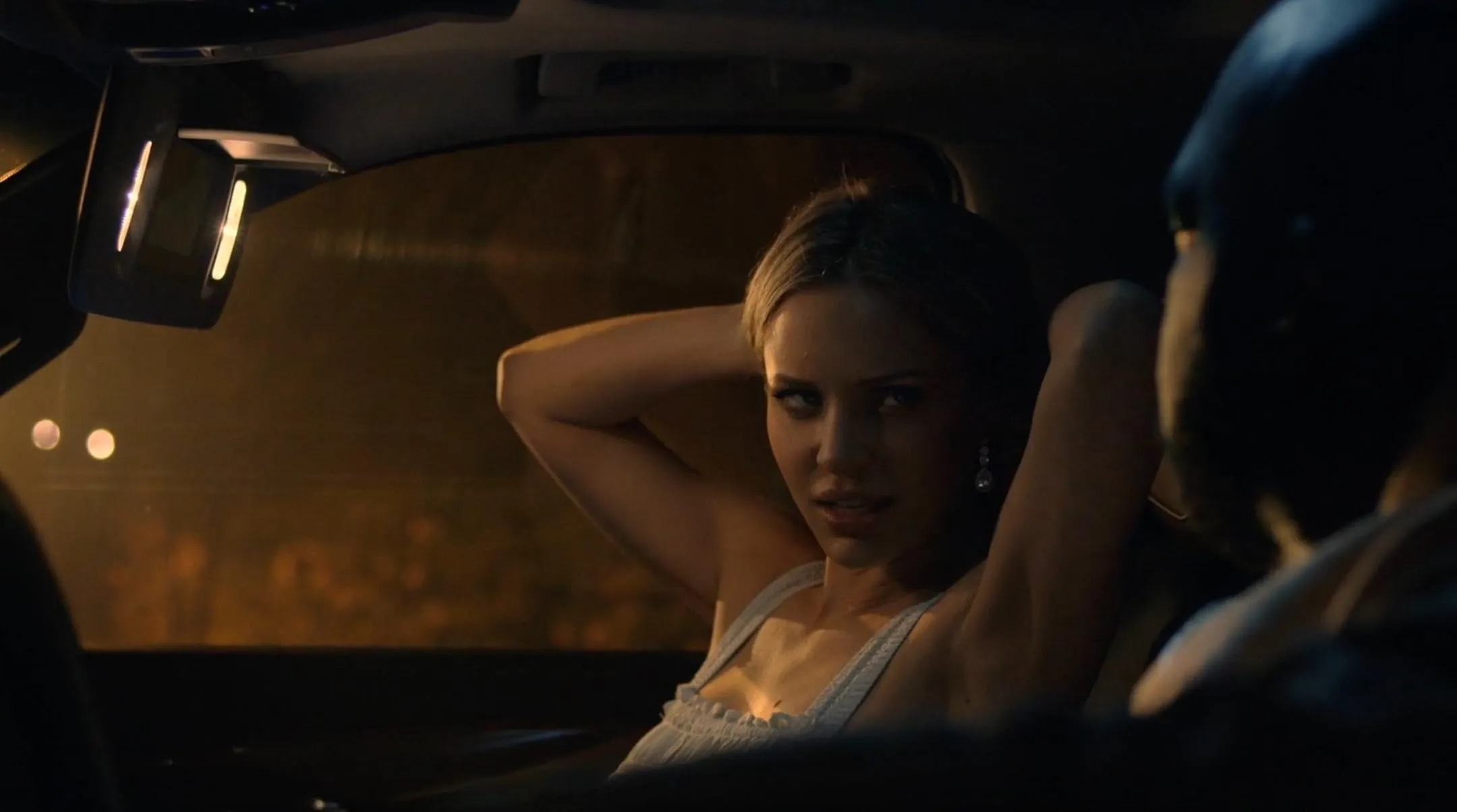As I fell into the familiar rhythms of “Bookie Season 2,” I was struck by the show’s distinct charm—a blend of business pranks and personal strife that feels delightfully familiar and unsettlingly present. At its heart, “Bookie” focuses on Danny Colavito, played by Sebastian Maniscalco, whose frenzied energy and hilarious timing lure you in like a moth to an unyielding flame.
Chuck Lorre and Nick Bakay created the series, which bears Lorre’s unique style but also dances in its strange orbit. It’s a workplace comedy that thrives on the absurdities of illicit bookmaking, a world that feels increasingly outdated in an age when sports betting is getting more popular.
The shift to Season 2 is very noteworthy. The first season, while amusing, earned mediocre reviews, making it an almost forgettable entry in a crowded comedy genre. Yet here we are, with the creators seemingly empowered, beginning on a journey to deepen character arcs and raise the stakes.
It’s an interesting transition; one might argue that the concept of growth in a sitcom is an ambitious venture in and of itself. I find myself grappling with my expectations in light of hints of increased emotional stakes and character development.
Can a show that was formerly considered comfortably average suddenly tap into a more significant narrative? As I watch Danny navigate his tumultuous life, I can’t help but question whether this season will not just entertain but also serve as a mirror for our struggles—balancing ambition with familial commitments and dreams with reality.
Navigating Chaos: The Heart of “Bookie”
Character development develops like a well-worn map in “Bookie,” with each twist and turn exposing deeper layers of humanity behind the humorous surface. Sebastian Maniscalco plays Danny Colavito with a restless energy that feels familiar and disturbing.
I reflect on the universal battle to balance ambition with personal responsibility as I watch him struggle with his multiple duties as a husband and a bookie. Danny’s journey is punctuated by moments of vulnerability, which humanize his otherwise reckless pursuit of a dying ambition. His attempts to reclaim his wife, Sandra, play out against a backdrop of chaotic decisions, and I see a reflection of my hesitations and failures in these blunders.
Ray, played by Omar J. Dorsey, emerges as a steady counterweight to Danny’s erratic behavior. Ray, Danny’s companion, epitomizes the tension between familial duty and the pull of the hustle. His dedication to his grandma and children lends dimension to the narrative and anchors the show in the realities of responsibility. I find myself wondering how frequently we sacrifice our wants for responsibility. This question persists as Ray navigates his challenges, demonstrating the delicate balance of ambition and commitment.
The supporting characters add depth to the tapestry of “Bookie.” Sandra’s evolving relationship with Danny is especially poignant; her struggle to balance love and self-preservation resonates strongly in a world that frequently expects too much of us. Meanwhile, Lorraine and Hector’s dynamic introduces a lighter but no less complex exploration of loyalty and aspiration. Their interactions are peppered with humor, frequently concealing deeper emotional currents, forcing me to ponder how we all wear different social masks in our relationships.
Maniscalco’s performance is a masterclass in comedic timing, seamlessly blending physicality and emotional nuance. However, the ensemble cast elevates the narrative, with each actor infusing their role with a vitality that makes the world of “Bookie” feel alive. These performances invite us to laugh at our follies while subtly urging us to confront our truths, and I can’t help but admire how they reflect the chaos of life. This delicate balance is where the show finds its heart, leaving me entertained and contemplative, questioning the meaning of success and connection.
The Tangle of Love and Ambition in “Bookie”
At the heart of “Bookie” is a plot that weaves the turbulent strands of ambition and love together. This narrative will speak to anybody who has been caught between personal desire and familial duty. Danny Colavito’s quest to reunite with his wife, Sandra, unfolds like a tragic comedy, punctuated by moments of desperation that feel all too relatable.
His attempts to manage a failing bookmaking business while rekindling a relationship that has simmered under financial stress and emotional neglect are raw and honest. As I watch him navigate this duality, I can’t help but reflect on my own experiences juggling professional goals with the complexities of love; it’s a dance that sometimes feels like fumbling in the dark with two left feet.
As the main plotline progresses, the subplots form a rich tapestry, adding layers of complexity to the central narrative. Ray’s family life, particularly his relationship with Lorraine, provides a stabilizing element amid chaos. Their dynamic explores the nuances of love and support in a overwhelming world.
There is a softness to their interactions that contrasts dramatically with Danny’s wild antics, reminding us that connection can ground us even in the most turbulent times. Yet, the inclusion of a neighbor’s murder-suicide provides an unexpected twist, weaving dark humor into the fabric of daily life. It’s a striking reminder of how life’s absurdities may clash with our prosaic realities, sparking laughter even in tragedy. This contrast left me questioning whether we are all just one misstep away from chaos.
Certain episodes are defining moments of the season, embodying the blend of humor and heart for which “Bookie” aspires. One particular episode, where Danny’s efforts to rid himself of his mother-in-law lead to misunderstandings, demonstrates the show’s aptitude for turning ordinary issues into comedy treasures.
These highlights connect with me, echoing the numerous ways we often find ourselves entangled in our own lives—struggling to disentangle ourselves from situations that appear both hilarious and tragic. This delicate mix makes “Bookie” such a fascinating movie; it drives me to reflect on the absurdities of my own life while also inviting me to laugh at the chaos onscreen.
The Art of Laughter in “Bookie”
In “Bookie,” humor emerges as a complex gem, reflecting a blend of physical comedy and keen situational humor. The way the show incorporates tension into its comedy setups is deliciously unpredictable, frequently leaving viewers on the edge of their seats, braced for both laughter and discomfort.
I find myself giggling at Danny’s follies, a reminder of how life’s absurdities may spiral into laughter when we least expect it. This interaction between tension and release resonates deeply with me; it’s reminiscent of those moments when a simple misinterpretation may lead to hilarious consequences, a phenomenon we’ve all experienced yet rarely explain.
Sebastian Maniscalco’s stand-up roots are clear, infusing the character of Danny with a frantic appeal that feels natural and relatable. His physicality—those exaggerated motions and emotive reactions—brings a vivid intensity to the screen, echoing the rhythm of his live performances. It’s as if each scene is a small stand-up act, where the punchlines land with the precision of a well-timed joke. However, I question whether the character’s reliance on stand-up methods restricts his depth. Can a humorous persona genuinely encapsulate the complexities of a flawed human being?
Audience reactions to humor frequently reflect a range of emotions, from loud laughter to uneasy silence. It’s fascinating to see how viewers react to the delicate balance of comedy and tragedy; laughter can feel like a coping technique, a means to navigate the difficult truths the show masterfully portrays. This dichotomy makes me wonder: does humor only serve to entertain, or does it also force us to confront our follies? In “Bookie,” the answer appears somewhere in the middle, inviting us to laugh while reflecting on the absurdity of our own lives.
The Tapestry of Life in “Bookie”
“Bookie” expertly mixes family dynamics and moral ambiguity issues into its humorous fabric, illustrating the complex relationships that define our lives. At its foundation, the series delves into the delicate balance of love and duty, particularly Danny’s difficult attempts to reunite with his wife, Sandra.
Anyone who has experienced the strain of familial expectations will relate to their interactions, echoing the common tension between personal ambition and the weight of duty. I reflect on myily dynamics, those moments when independence and connection clash. The show catches this well, portraying the complexities of love that frequently lurk behind the surface of ordinary life.
However, it is the moral ambiguity that genuinely fascinates me. The characters navigate a world fraught with ethical difficulties, where the line between good and wrong blurs in the tumultuous world of illicit bookmaking. Danny’s decisions frequently lead me to question my values: how far would I go to protect those I love? This exploration of moral grayness feels especially poignant in today’s sociopolitical setting, as the lines between ambition and ethics are frequently blurred.
Furthermore, “Bookie” serves as a mirror reflecting modern society’s challenges, employing humor to examine the absurdities we face. The show navigates problems such as the rise of legalized gambling and altering cultural standards, questioning whether we are all implicated in the chaos of our choices. This remark, wrapped in laughter, creates a sensation of discomfort that lasts long after the credits roll. In this sense, “Bookie” goes beyond the confines of a typical sitcom, inviting viewers to grapple with the painful facts of modern life while laughing amidst the chaos.
Crafting Chaos: The Production of “Bookie”
Bookie’s directorial approach seeks a balance between chaos and coherence, reflecting the characters’ chaotic world. The direction expertly matches the narrative, allowing moments of frenzied energy to coexist with quieter, introspective scenes.
I frequently find myself appreciating how the pacing reflects the characters’ emotional arcs, generating a rhythm that feels natural and engaging. It’s as if the director invites us to experience Danny’s life intimately, drawing us into his challenges and successes with almost physical immediacy.
The writing quality enriches the overall experience. Its crispness lends itself to brilliant dialogue, seamlessly integrating humor with poignant observations about life and relationships. I occasionally marvel at how a single line may encapsulate a situation’s absurdity while still revealing deeper realities. However, I wonder if the reliance on humorous rhythms often sacrifices nuance—do we miss out on more important moments in favor of punchlines?
Visually, “Bookie” has a colorful look, with a production design that captures the gritty charm of its Los Angeles locale. The cinematography portrays Danny’s fast-paced world and the softer, more intimate moments that define his journey. The visual storytelling has a raw honesty that resonates strongly with me, reminding me of the beauty hidden in the muck of life. In this sense, the total production quality supports and elevates the narrative, creating an environment in which laughter and reflection coexist in joyful confusion.
Engaging the Heart: Audience Appeal in “Bookie”
“Bookie” appears to be tailor-made for an audience that thrives on a blend of humor and introspection—viewers who understand the complexities of family life and the absurdities of ambition. It appeals to individuals who have sailed the turbulent waters of maturity and those grappling with the tug of love and obligation.
In the greater world of “Mid TV,” the series finds its niche, providing a welcome break from the typically serious narratives that dominate today’s screen.
It balances the lightheartedness of classic sitcoms and the gravity of more dramatic fare, creating a unique viewing experience that encourages laughter while inspiring deeper reflection. However, I wonder whether its blend of comedy and emotional depth will be enough to leave an enduring impact in an ever-changing television landscape.
The Review
Bookie Season 2
"Bookie" expertly blends humor and sad moments, exploring family dynamics and moral uncertainty. With incisive writing and a lively directing style, it portrays the chaos of modern life while inviting viewers to reflect on their own experiences. The performers, particularly Maniscalco, have a relatable intensity that makes the series enjoyable and thought-provoking. While it does not reinvent television, it carves out a distinct niche within "Mid TV," engaging viewers with its blend of comedy and reflection.
PROS
- Sharp, witty writing that balances humor and emotional depth.
- Relatable characters that resonate with real-life experiences.
- High-energy direction that captures chaotic family dynamics.
- Strong performances, particularly from Sebastian Maniscalco.
CONS
- Some narrative arcs may feel predictable or formulaic.
- Reliance on comedic beats can sometimes overshadow deeper themes.





















































